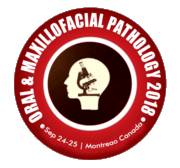
Shenuka Singh
Associate Professor in the Discipline of Dentistry at University of KwaZulu-Natal.
Title: What role does the dental curriculum play in shaping undergraduate students’ attitudes towards oral health self-care practices?– A report from a South African University
Biography
Biography: Shenuka Singh
Abstract
Introduction: Student attitudes and behavior towards their own oral health status could reflect their understanding of the importance of oral health promotive activities.
Study Objectives: This exploratory study with a qualitative approach was designed to gain a deeper understanding of the extent to which the undergraduate curriculum could act as an enabler for student oral health self-care practices.
Methods: Data collection comprised document analysis (targeted curriculum review) and in-depth face-to-face interviews with undergraduate dental therapy and oral health students, and academic staff at a university in KwaZulu-Natal (KZN). Ten students volunteered to participate in the study while five academic staff were purposively selected. A separate interview schedule was developed for students and staff, respectively. The emergent themes from document analysis were compared to the analyzed data from the interviews.
Results: The curriculum was underpinned by a strong foundation in prevention, and there was consensus among respondents that the curriculum met the needs for undergraduate training in preventive dentistry. The following themes emerged from data analysis: curriculum support for self-care practices; depth and scope of clinical training; role of clinical supervisors and challenges in clinical training. Respondents agreed that the curriculum could influence students’ attitudes towards self-care practices such as tooth brushing and flossing but that academic responsibilities and clinical contact time placed constraints on these practices.
Conclusion: The undergraduate curriculum does provide support for enabling student knowledge acquisition and positive attitudes, but more effort is required to enable oral health behavioral modifications among students.

